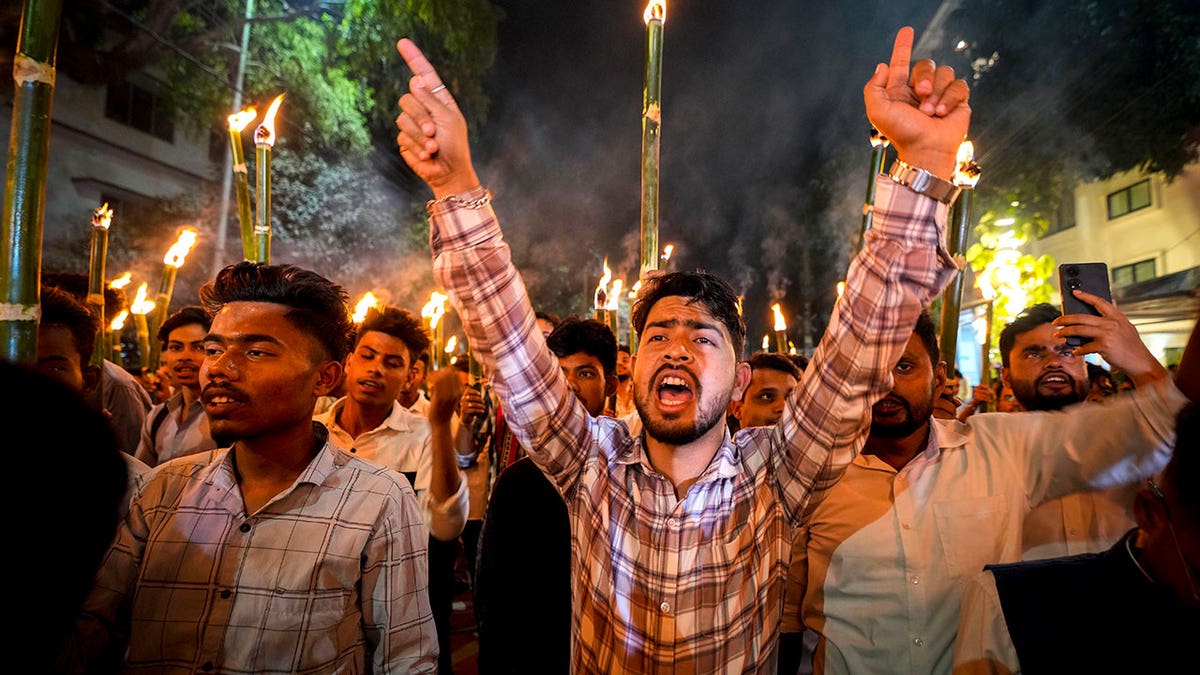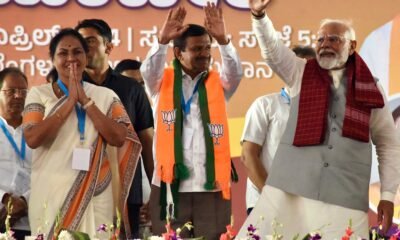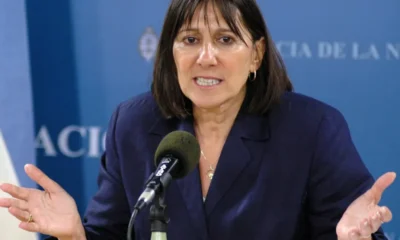INTERNACIONAL
Muslims in India voice concerns that new citizenship law could further marginalize them

- India has recently announced the implementation of a citizenship law excluding Muslims.
- The Citizenship Amendment Act provides expedited naturalization for migrants from South Asian faiths other than Islam, excluding Muslims from Afghanistan, Bangladesh and Pakistan.
- The law, approved in 2019, sparked nationwide protests due to concerns about its discriminatory nature.
India has implemented a citizenship law that excludes Muslims, a minority community whose concerns have heightened under Prime Minister Narendra Modi’s Hindu nationalist government.
The rules for the law were announced Monday. It establishes a religious test for migrants from every major South Asian faith other than Islam. Critics argue that the law is further evidence that Modi’s government is trying to reshape the country into a Hindu state and marginalize Muslims.
WHAT IS THE CITIZENSHIP LAW?
The Citizenship Amendment Act provides a fast track to naturalization for Hindus, Parsis, Sikhs, Buddhists, Jains and Christians who fled to Hindu-majority India from Afghanistan, Bangladesh and Pakistan before Dec. 31, 2014. The law excludes Muslims, who are a majority in all three nations.
INDIA’S GOVERNMENT TO ENACT CONTROVERSIAL CITIZENSHIP LAW EXCLUDING MUSLIMS AHEAD OF ELECTION
It also amends the old law, which prevents illegal migrants from becoming Indian citizens, and marks the first time that India — an officially secular state with a religiously diverse population — has set religious criteria for citizenship.

All Assam Students Union members take out a torch procession to protest against the Citizenship Amendment Act on March 12, 2024, in Guwahati, India. India has implemented a citizenship law that excludes Muslims, a minority community whose concerns have heightened under Prime Minister Narendra Modi’s Hindu nationalist government. (AP Photo/Anupam Nath)
The Indian government has said those eligible can apply for Indian citizenship through an online portal.
The implementation of the law has been one of the key campaign promises of Modi’s ruling Bharatiya Janata Party before a general election scheduled to be held by May.
Modi’s government has dismissed arguments that the law is discriminatory. It defends the law as a humanitarian gesture to extend citizenship to religious minorities fleeing persecution and says it would not be used against Indian citizens.
WHAT MAKES THE LAW SO CONTROVERSIAL?
The law was approved by Parliament in 2019, but Modi’s government held off its implementation after deadly protests in which scores were killed.
The nationwide protests drew people of all faiths who said the law undermines India’s foundation as a secular nation. Muslims were particularly worried that the government could use the law, combined with a proposed citizenship registry, to marginalize them.
The National Register of Citizens is part of the Modi government’s effort to identify and weed out people it claims came to India illegally. The register has only been implemented in the northeastern state of Assam, but Modi’s party has promised to roll out a citizenship verification program nationwide.
Critics and Muslim groups say the citizenship law will protect non-Muslims who are excluded from the register, while Muslims could face deportation or internment.
On Monday, human rights watchdog Amnesty India said the law «legitimizes discrimination based on religion.»
The United States also expressed its concern and said it will closely monitor how India implements the law. «Respect for religious freedom and equal treatment under the law for all communities are fundamental democratic principles,» State Department spokesperson Matthew Miller told reporters at a daily briefing Thursday.
WHY ARE INDIA’S MUSLIMS WORRIED?
Opponents of the law — including Muslims, opposition parties and rights groups — say it is exclusionary and violates the secular principles enshrined in the constitution. They say faith cannot be made a condition of citizenship.
Some also argue that if the law is aimed at protecting persecuted minorities, then it should have included Muslim religious minorities who have faced persecution in their own countries, including Ahmadis in Pakistan and Rohingyas in Myanmar.
To critics, Modi is pushing a Hindu nationalist agenda that threatens to erode the country’s secular foundation, shrink space for religious minorities, particularly Muslims, and move the country closer to a Hindu nation.
INDIA’S RELIGIOUS DIVIDE CONTINUES TO WIDEN BETWEEN MUSLIM, HINDU COMMUNITY
India has a large minority group of 200 million Muslims in its population of more than 1.4 billion. They live in almost every part of India and have been targeted in numerous attacks since Modi assumed power in 2014.
Scores of Muslims have been lynched by Hindu mobs over allegations of eating beef or smuggling cows, an animal considered holy to Hindus. Muslim businesses have been boycotted, their localities have been bulldozed and places of worship set on fire. Some open calls have been made for their genocide.
Critics say Modi’s conspicuous silence over anti-Muslim violence has emboldened some of his most extreme supporters and enabled more hate speech against Muslims.
Modi has also increasingly mixed religion with politics in a formula that has resonated deeply with India’s majority Hindu population. In January, he opened a Hindu temple at the site of a demolished mosque in northern Ayodhya city, fulfilling his party’s long-held Hindu nationalist pledge.
INTERNACIONAL
Choque de poder en Ecuador: una jueza restituye en su cargo a la vicepresidenta y echa abajo una suspensión de cinco meses

Denuncia presiones
-
INTERNACIONAL3 días ago
Atropello múltiple en un mercado de Navidad en Alemania: al menos dos muertos y más de 60 heridos
-
POLITICA3 días ago
Guillermo Castello: «Kicillof está utilizando la caja de la provincia para posicionarse políticamente»
-
POLITICA2 días ago
Nisman: el Gobierno acepta el pedido del fiscal y levanta el secreto sobre los espías inorgánicos de la SIDE y el Ejército
-
CHIMENTOS2 días ago
Se confirmó el escandaloso motivo de la crisis entre Javier Milei y Yuyito González: «Él estaba cerca de Graciela Alfano»
-
POLITICA1 día ago
El Gobierno reveló los pasos para salir del cepo cambiario y alcanzar la “flotación limpia”: cuáles son
-
POLITICA2 días ago
Javier Milei le manda otro mensaje a Victoria Villarruel: mantendrá congelados los sueldos de ministros y funcionarios










































